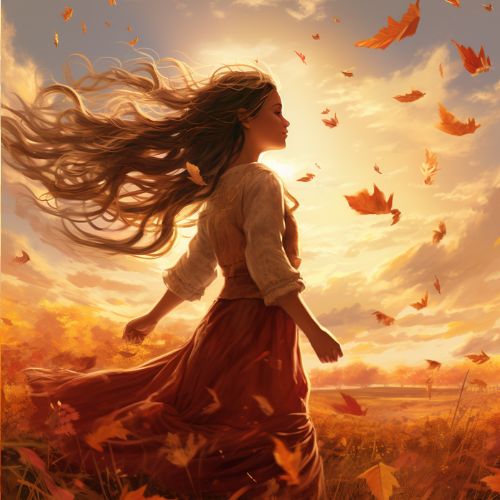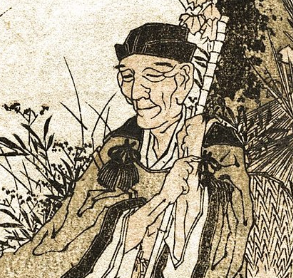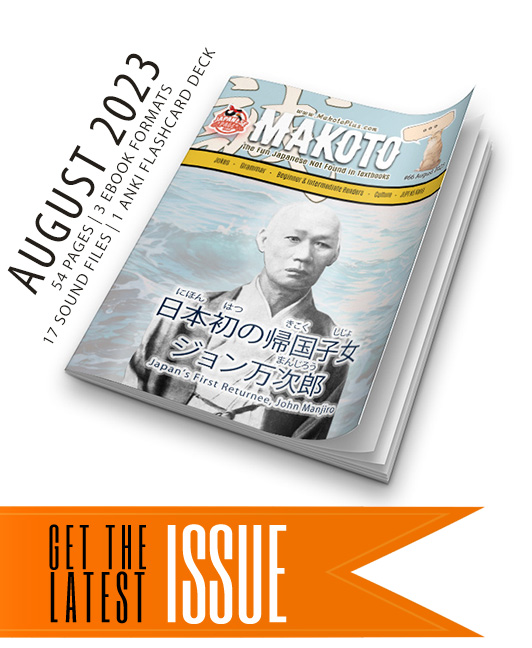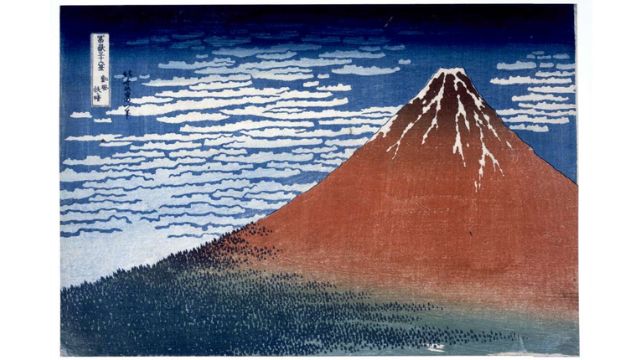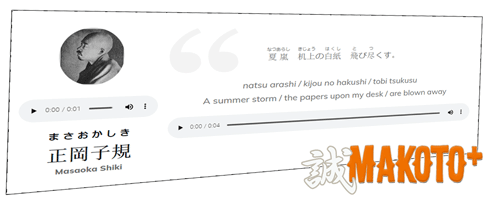Happy Sunday! Today, we will dissect a classic Basho poem. So, grab a cup of coffee and let's dig in!
----
But first, did you get our latest Makoto issue?
If you aren't a member, give our free trial a try and download the new issue instantly.
If you are a member, you can find the download links here: Samurai and Shogun
----
And now, today's Sunday Haiku:
Today's haiku is by 松尾 芭蕉【まつお ばしょう】. Matsuo Basho (1644-1694) is the most famous of the classical haiku poets.
Makoto+ Shogun or Lifetime members, click here for today's haiku with sound and almost 100 other haiku lessons. (Not yet a member, let's fix that!)
Haiku lesson
Let's get right to it.
あかあかと 日はつれなくも 秋の風
VOCABULARY
- あかあかと shining bright and red; shining very bright [あかあか (bright and red); literally, “red red” a form of onomatopoeia describing how hot the sun is by repeating “red” twice; と (quotes the state: “bright and red”; usually this と makes it adverbial)]
- 日はつれなくも even though the sun has no mercy
- 日 the sun
- つれなく [adverbial of つれない (unfriendly; unsympathetic; cold; unkind); つれなくも is a sort of archaic or poetic version of つれなくても(even though (sun is) unmerciful]
- も even though; although (the sun has no mercy)
- 秋の風 autumn wind [秋 (autumn; fall); の (of); 風 (wind)]
It's a little early, but I wanted to share this famous haiku by 松尾芭蕉 (Matsuo Basho) which captured how I felt last night.
Yesterday, I was outside for a while. I don't do heat well. 夏バテになりやすいタイプ (I am the type of guy who is prone to summer fatigue: 夏バテ (なつばて summer heat fatigue). And boy was it hot.
But then, when evening came, all of the sudden a breeze came through driving away every bit of バテ from me. It ended up being a bit chilly.
Do you know that feeling?
Unbearable summer heat and then... a wonderfully refreshing evening breeze comes, erasing it all away.
季語【きご】 Season Word
The 季語(きご) or season word is 「秋(あき)の風(かぜ)」, indicating the season is fall, or late summer. While 風(かぜ) alone doesn't specify a season, it's often paired with other words to create the 季語(きご).
For instance, 「秋(あき)の風(かぜ)」, or “autumn wind,” conjures up an image of a refreshing breeze, while 「冬(ふゆ)の風(かぜ)」, or “winter wind,” evokes a different sensation.
Clay's Take
In this poem, we find ourselves in the midst of 残暑(ざんしょ), the lingering late-summer heat of August, just on the cusp of autumn. Then, the cool, refreshing 「秋(あき) の風(かぜ) 」, or “fall wind,” arrives, pushing the residual heat away.
Red Fuji by Katsushika Hokusai 葛飾北斎
Probably an August Fuji scene
The time is mid to late August. We should be transitioning into fall, but the oppressive summer heat continues to bear down during the day. However, the sudden arrival of a cool evening breeze serves as a gentle reminder that autumn is just around the corner.
What's your take? Let me know in the comments below.
If you are a Makoto+ Shogun or lifetime member, click here to see this lesson with audio. [Sorry, the Samurai level doesn't have access to past haiku lessons.]
Like this haiku lesson? Did you know we have almost a hundred other haiku lessons on Makoto+ now? All have vocabulary and grammar breakdowns with sound and cultural notes. Shogun and lifetime members have unlimited access to all lessons.




